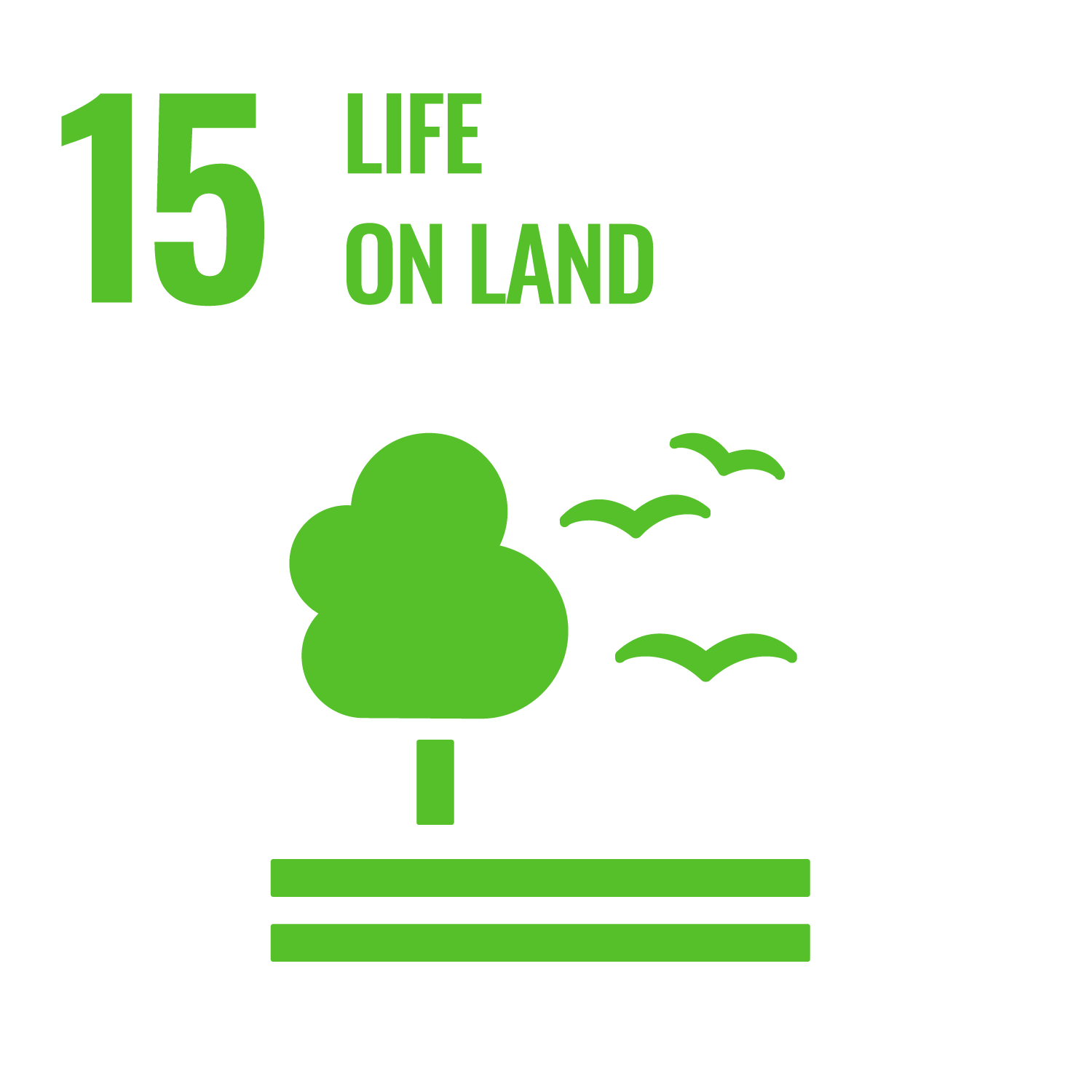Rooted in purpose: The LPU Green Project cultivates a future that grows beyond the campus
Views: 334



Promoting sustainable land use and biodiversity conservation are essential for preserving ecosystems and protecting terrestrial habitats. At LPU Batangas, we prioritize environmental policies and practices that promote sustainable land use and conservation efforts. Through initiatives like our arboretum and green wall program, we aim to restore and preserve terrestrial habitats for native flora and fauna.
To protect life on land, we implement strict policies against the use of plastic and Styrofoam on campus and promote responsible waste disposal practices. Our environmental awareness programs and projects educate our campus community about the importance of biodiversity conservation and sustainable land management. Additionally, we engage in curriculum integration and research projects that focus on terrestrial ecosystems and biodiversity conservation. Through these efforts, we contribute to the protection of life on land and work towards a more sustainable future for all.


Implementing robust environmental policies and sustainable practices is essential for biodiversity conservation and ecosystem protection. These initiatives include regulations, guidelines, and practices that promote sustainable land use, wildlife conservation, and habitat restoration. By integrating environmental considerations into decision-making processes, organizations and communities can minimize negative impacts on terrestrial ecosystems.
Establishing an arboretum preserves and showcases diverse tree species, promoting biodiversity conservation and environmental education. This initiative involves creating botanical gardens or arboreal collections that serve as living laboratories for research, education, and public engagement in ecosystem conservation and sustainable forestry practices.
Green wall programs involve installing vertical gardens on building facades to enhance urban biodiversity, improve air quality, and reduce urban heat island effects. These initiatives contribute to habitat creation for wildlife, mitigate carbon dioxide levels, and beautify urban spaces while promoting sustainable urban development.
Adopting policies to reduce the use of plastics and styrofoam helps mitigate environmental pollution and protect terrestrial and marine ecosystems. These policies promote the use of eco-friendly alternatives, encourage recycling, and regulate the disposal of plastic waste to prevent habitat degradation and wildlife harm.
Enforcing strict regulations on the use of disposable materials promotes sustainable consumption and reduces waste generation. This initiative encourages the adoption of reusable drinking bottles and food containers, minimizing plastic pollution in terrestrial and aquatic environments.
Collaborating with the Philippine Movement for Climate Justice strengthens advocacy efforts for environmental conservation and climate action. This partnership involves mobilizing communities, advocating for policy changes, and participating in climate-related campaigns to protect natural habitats and promote sustainable land management practices.
Conducting a 7S audit evaluates organizational practices related to sustainability (Sort, Set in order, Shine, Standardize, Sustain, Safety, Spirit). This initiative identifies areas for improvement, enhances resource efficiency, and promotes a culture of environmental responsibility within institutions.
Environmental awareness programs educate communities about biodiversity, ecosystem services, and the importance of sustainable land management practices. These initiatives include workshops, seminars, and outreach campaigns that raise awareness, inspire action, and empower individuals to participate in conservation efforts.
Integrating environmental topics into educational curricula ensures that students develop a deep understanding of biodiversity conservation and sustainable land use practices. This initiative equips future generations with knowledge and skills to address environmental challenges and promote responsible stewardship of natural resources.
Send us your inquiries and we would be glad to answer them.
| Cookie | Duration | Description |
|---|---|---|
| cookielawinfo-checkbox-analytics | 11 months | This cookie is set by GDPR Cookie Consent plugin. The cookie is used to store the user consent for the cookies in the category "Analytics". |
| cookielawinfo-checkbox-functional | 11 months | The cookie is set by GDPR cookie consent to record the user consent for the cookies in the category "Functional". |
| cookielawinfo-checkbox-necessary | 11 months | This cookie is set by GDPR Cookie Consent plugin. The cookies is used to store the user consent for the cookies in the category "Necessary". |
| cookielawinfo-checkbox-others | 11 months | This cookie is set by GDPR Cookie Consent plugin. The cookie is used to store the user consent for the cookies in the category "Other. |
| cookielawinfo-checkbox-performance | 11 months | This cookie is set by GDPR Cookie Consent plugin. The cookie is used to store the user consent for the cookies in the category "Performance". |
| viewed_cookie_policy | 11 months | The cookie is set by the GDPR Cookie Consent plugin and is used to store whether or not user has consented to the use of cookies. It does not store any personal data. |